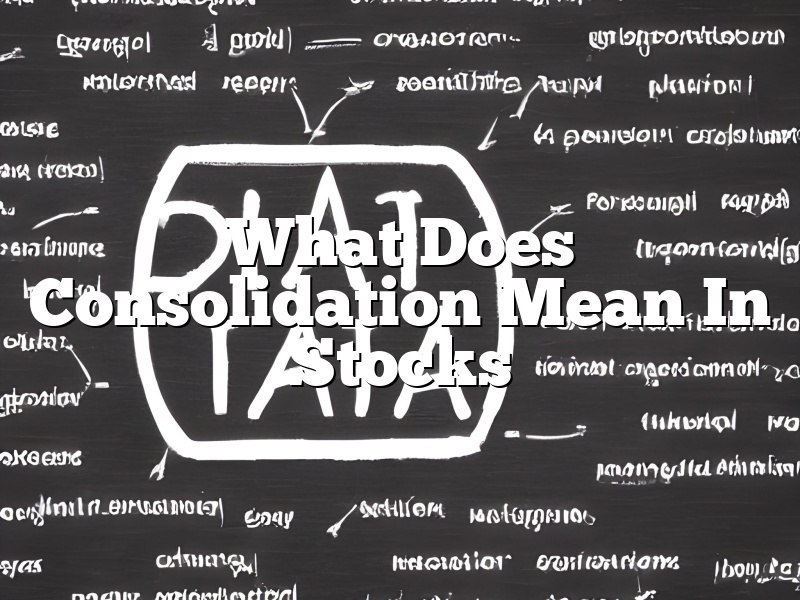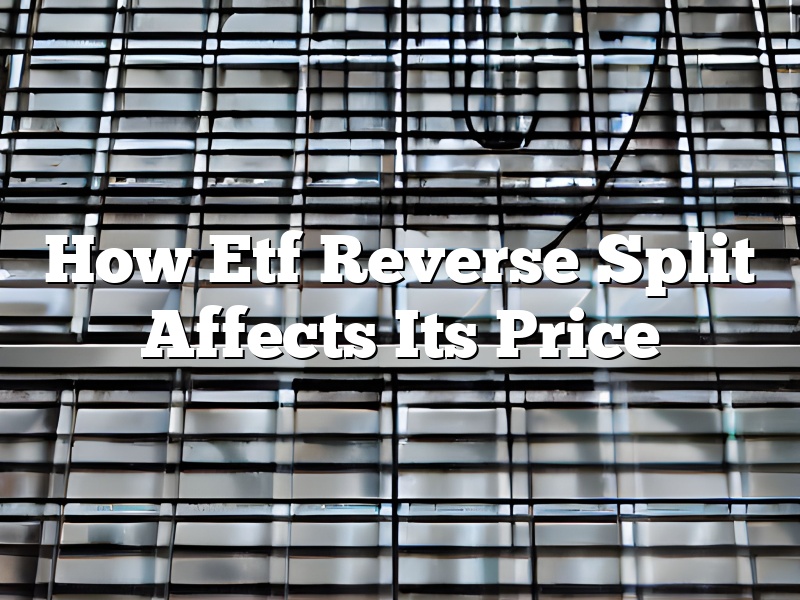What is Erx ETF? ERX is an exchange-traded fund that focuses on energy stocks. It was launched in 2006 and is managed by State Street Global Advisors. The fund has $152 million in assets and charges a 0.45% annual fee. The top five holdings are Exxon Mobil (XOM), Chevron (CVX), Schlumberger (SLB), Halliburton (HAL), and […]
What Does Consolidation Mean In Stocks
What Does Consolidation Mean In Stocks When a company announces a consolidation, it means that the company is splitting its stock into a higher number of shares. Usually, a consolidation happens when the stock is trading too high and the company wants to make it more affordable for smaller investors to buy in. A consolidation […]
Where To Find Etf Reverse Split Schedule
ETFs (exchange-traded funds) are investment vehicles that allow investors to pool their money together and invest in a basket of securities. ETFs are traded on exchanges, just like stocks, and can be bought and sold throughout the day. One of the benefits of ETFs is that they offer investors a way to diversify their portfolios. […]
How Etf Reverse Split Affects Its Price
An ETF reverse split is a corporate action by which a company reduces the number of its outstanding shares of common stock by dividing each share of common stock into a greater number of shares. The price of an ETF reverse split-affected security usually falls in the short term, as the market adjusts to the […]
What Is A Reverse Split On Stocks
A reverse stock split is a corporate action in which a company reduces the number of its outstanding shares by dividing them into a larger number of shares. For instance, a company with 100 million shares outstanding might reverse split the stock 10-to-1, so that it would have 10 million shares outstanding after the split. […]
What Is Reverse Split Stocks
What Is Reverse Split Stocks? A reverse stock split is a process by which a company reduces the number of its outstanding shares by dividing each share into a higher number of shares. For example, a company with 1,000 shares outstanding and a share price of $10 would execute a 1-for-10 reverse stock split, resulting […]
What Is A Reverse Split In Stocks
A reverse split in stocks is a process where a company reduces the number of its outstanding shares by issuing new shares to its shareholders, and then cancelling the old ones. The company does this to maintain or increase the share price. For example, a company with 100 shares outstanding and a share price of […]


















0